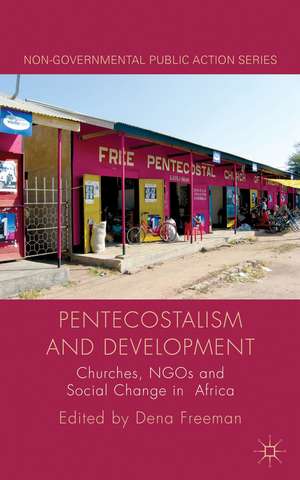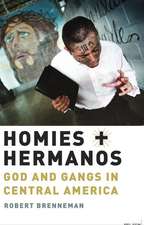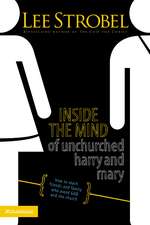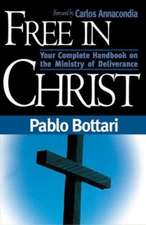Pentecostalism and Development: Churches, NGOs and Social Change in Africa: Non-Governmental Public Action
Editat de D. Freemanen Limba Engleză Hardback – 3 sep 2012
| Toate formatele și edițiile | Preț | Express |
|---|---|---|
| Paperback (1) | 722.43 lei 6-8 săpt. | |
| Palgrave Macmillan UK – 2012 | 722.43 lei 6-8 săpt. | |
| Hardback (1) | 724.00 lei 6-8 săpt. | |
| Palgrave Macmillan UK – 3 sep 2012 | 724.00 lei 6-8 săpt. |
Din seria Non-Governmental Public Action
-
 Preț: 388.72 lei
Preț: 388.72 lei -
 Preț: 385.62 lei
Preț: 385.62 lei -
 Preț: 389.70 lei
Preț: 389.70 lei -
 Preț: 389.70 lei
Preț: 389.70 lei -
 Preț: 390.63 lei
Preț: 390.63 lei -
 Preț: 389.70 lei
Preț: 389.70 lei -
 Preț: 391.61 lei
Preț: 391.61 lei -
 Preț: 386.81 lei
Preț: 386.81 lei -
 Preț: 392.60 lei
Preț: 392.60 lei -
 Preț: 386.22 lei
Preț: 386.22 lei - 15%
 Preț: 642.51 lei
Preț: 642.51 lei - 5%
 Preț: 362.88 lei
Preț: 362.88 lei - 15%
 Preț: 648.24 lei
Preț: 648.24 lei -
 Preț: 236.79 lei
Preț: 236.79 lei - 15%
 Preț: 587.39 lei
Preț: 587.39 lei - 15%
 Preț: 590.95 lei
Preț: 590.95 lei -
 Preț: 389.70 lei
Preț: 389.70 lei
Preț: 724.00 lei
Preț vechi: 882.92 lei
-18% Nou
Puncte Express: 1086
Preț estimativ în valută:
138.54€ • 145.31$ • 115.33£
138.54€ • 145.31$ • 115.33£
Carte tipărită la comandă
Livrare economică 01-15 aprilie
Preluare comenzi: 021 569.72.76
Specificații
ISBN-13: 9781137017246
ISBN-10: 1137017244
Pagini: 235
Ilustrații: XIII, 248 p.
Dimensiuni: 140 x 216 x 23 mm
Greutate: 0.34 kg
Ediția:2012
Editura: Palgrave Macmillan UK
Colecția Palgrave Macmillan
Seria Non-Governmental Public Action
Locul publicării:London, United Kingdom
ISBN-10: 1137017244
Pagini: 235
Ilustrații: XIII, 248 p.
Dimensiuni: 140 x 216 x 23 mm
Greutate: 0.34 kg
Ediția:2012
Editura: Palgrave Macmillan UK
Colecția Palgrave Macmillan
Seria Non-Governmental Public Action
Locul publicării:London, United Kingdom
Cuprins
The Pentecostal Ethic and the Spirit of Development; D.Freeman PART I: PENTECOSTALISM AND THE NEOLIBERAL TURN Pentecostalism, Populism and the New Politics of Affect; J.Comaroff Prosperity Gospels and Enchanted Worldviews: Two Responses to Socio-Economic Transformations in Tanzanian Pentecostal Christianity; P.Hasu Pentecostalism and Post-Development: Pentecostal Development Ideologies in Ghanaian Migrant Communities; R.van Dijk PART II: CHURCHES AND NGOS: DIFFERENT ROUTES OF SALVATION Pentecostal and Development Imaginaries in West Africa; C.Piot Saving Development: Secular NGOs, the Pentecostal Revolution, and the Search for a Purified Political Space in the Taita Hills, Kenya; J.Smith Development and the Rural Entrepreneur: Pentecostals, NGOs and the Market in the Gamo Highlands, Ethiopia; D.Freeman Pentecostalism, Development NGOs and Meaning in Eastern Uganda; B.Jones Agents of Gendered Change: Empowerment, Salvation and Gendered Transformation in Urban Kenya; D.Parsitau
Recenzii
'Scholars have for some time sensed that in many parts of the world development projects and Pentecostal Christianity stand in complex relations of competition and cooperation as programs that similarly promote personal and cultural change. But until now, no single work has sharpened this widespread intuition into a coherent line of argument or a workable research program. This groundbreaking book does both. With a superb introduction that tackles the key issues head on, followed by a group of first-class case studies that cash these issues out empirically, this collection should set the terms of debate about development and religion in Africa and well beyond for a long time to come.' - Joel Robbins, Professor of Anthropology, University of California, San Diego, USA
'Full of new insights and transcending anthropologists' familiar condemnation of the aid industry, this book suggests a completely new direction for research on the type of change generally called 'development'.It boldly concludes that Pentecostal churches are often more effective agents of change than secular NGOs as they are more successful at emphasizing empowerment as personal transformation, enabling people to embrace change 'from below', and endowing such change with moral legitimacy. Using Weber's key insights, and drawing on a range of nuanced case studies, this fascinating book explores affinities between the 'Pentecostal ethic' and the forms of market-driven development which the aspirant middle class in Africa increasingly finds itself embracing.' - Deborah James, Professor of Anthropology, London School of Economics and Political Science, UK
'Full of new insights and transcending anthropologists' familiar condemnation of the aid industry, this book suggests a completely new direction for research on the type of change generally called 'development'.It boldly concludes that Pentecostal churches are often more effective agents of change than secular NGOs as they are more successful at emphasizing empowerment as personal transformation, enabling people to embrace change 'from below', and endowing such change with moral legitimacy. Using Weber's key insights, and drawing on a range of nuanced case studies, this fascinating book explores affinities between the 'Pentecostal ethic' and the forms of market-driven development which the aspirant middle class in Africa increasingly finds itself embracing.' - Deborah James, Professor of Anthropology, London School of Economics and Political Science, UK
Notă biografică
JEAN COMAROFF is Bernard E. and Ellen C. Sunny Distinguished Service Professor of Anthropology at the University of Chicago, USA
DENA FREEMAN is Lecturer in the Department of Anthropology, University College, London, UK PAIVI HASU is Adjunct Professor at the University of Jyväskylä, Finland
BEN JONES is Lecturer in the School of International Development at the University of East Anglia, UK
DAMARIS PARSITAU is Lecturer in African Christianities at Egerton University, Kenya CHARLES PIOT is Professor of Cultural Anthropology at Duke University, USA
JAMES H. SMITH is Associate Professor of Socio-Cultural Anthropology at the University of California, Davis, USA
RIJK VAN DIJK is an anthropologist working at the African Studies Centre, Leiden, The Netherlands
Caracteristici
Scholars have for some time sensed that in many parts of the world development projects and Pentecostal Christianity stand in complex relations of competition and cooperation as programs that similarly promote personal and cultural change. But until now, no single work has sharpened this widespread intuition into a coherent line of argument or a workable research program. This groundbreaking book does both. With a superb introduction that tackles the key issues head on, followed by a group of first-class case studies that cash these issues out empirically, this collection should set the terms of debate about development and religion in Africa and well beyond for a long time to come.' - Joel Robbins, Professor of Anthropology, University of California, San Diego, USA Full of new insights and transcending anthropologists' familiar condemnation of the aid industry, this book suggests a completely new direction for research on the type of change generally called 'development'. It boldly concludes that Pentecostal churches are often more effective agents of change than secular NGOs as they are more successful at emphasizing empowerment as personal transformation, enabling people to embrace change 'from below', and endowing such change with moral legitimacy. Using Weber's key insights, and drawing on a range of nuanced case studies, this fascinating book explores affinities between the 'Pentecostal ethic' and the forms of market-driven development which the aspirant middle class in Africa increasingly finds itself embracing.' - Deborah James, Professor of Anthropology, London School of Economics and Political Science, UK












